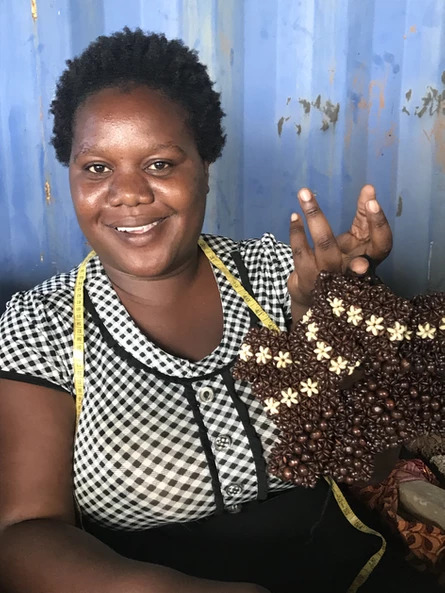The average Zambian must live on less than $1.25 per day. RecycloCraftz is creating an environment that will foster economic growth. Education, nutrition, vocation training, healthcare and spiritual maturation are all necessary for development, but they are not sufficient. There needs to be economic opportunities as well. What is the use of growing surplus crops if there is no market for them? How will education transform the lives of young people if there are no jobs for recent graduates? How can bright entrepreneurs create their own businesses if there is no capital or credit? RecycloCraftz is committed to creating economic opportunities so that, with all the necessities of life ensured, the people of Zambia can begin to develop themselves.
In the first quarter of 2019 alone, we have sent 6 additional donated sewing machines, including a second industrial machine from the U.S. to Lusaka for the artisans to use in the production of more handbags, backpacks, zippered bags, aprons, and other merchandise created for sale in America. In 2016 six members completed sewing courses offered by RecycloCraftz and received ‘half’ of a treadle sewing machine with an auxiliary motor of their own. They also received a microloan to ‘purchase’ the other half so they could utilize their new skills immediately and work more productively from home.
As of December 2018, 30 artisans were employed by the ministry. 90% of these artisans have been with the ministry since its beginning in 2008. Numerous artisans are the young adult children of members. A modified shipping container, equipped with doors, windows and electricity, serves as their comfortable workshop on the secure ½ acre plot that includes a ministry house with library and chicken house. Artisans are learning kingdom-focused business principles while learning a trade which enables them to always have a trade to rely on.
Artisans creating merchandise for sale earn a fair trade wage in the Zambian economy. They receive 60 % of the Zambian value of the product when it passes quality control inspection. An additional 20% is deposited into a savings account they can access at the end of each month. Being unfamiliar with saving accounts, they initially asked, “Aunt Tracy, why are you stealing our money?” Now, after 10 years, they say, “Please just give me a little of my earnings and put the rest into savings.” The remaining 20 % is money used for the running of the ministry, teaching them the business principle that some monies need to be reinvested into the business. With increased funding the percentages will change and the income earned by each artisan will increase.
Micro-loans are also available to members of the ministry when a need is established. With the loan, budding entrepreneurs have the capital to start a business or build up an existing one. They provide services to the community and begin making more money of their own! Many younger women pay off school fees that have prevented them from advancing in their education after dropping out of school in the past. Each member is responsible for re-paying the loan and a system is in place ensuring a pay back schedule.
A new financial future is on the horizon for many of the RecycloCraftz artisans.

